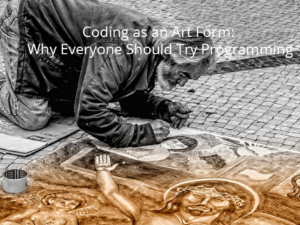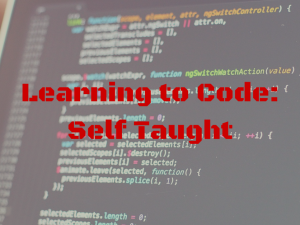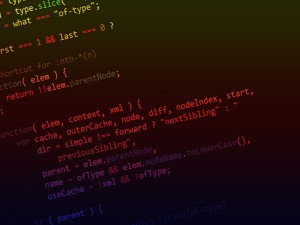
For anyone who has little to no experience with coding, it can seem intimidating to jump into the programming world. Between the dozens of programming language options and the technical vocabulary and syntax of each language, it’s no wonder most young people never actually begin learning to code.
When I start to learn a new programming language, whether it was my first time trying coding HTML/CSS in 6th grade or starting iPhone iOS mobile application development just last month, I began sketching out what project I could use my new coding skills. Once I have a project in mind, it becomes infinitely more exciting and motivating to learn to code. Instead of seeing coding as a chore, I look forward to spending a chunk of free time learning a new programming language. It becomes a way to turn my ideas and creativity into a tangible final product. Often, when I am first learning a new programming language, I don’t even write a code from scratch. I’ll take already existing code and tweak it, play with some of the settings, experimenting to see how the pages change. When I’m doing online tutorials, I use their instruction to guide coding my own project, instead of just mimicking their code on my screen.
Wanting to learn to code, but need a project to inspire you? Here are three types of websites you can build while learning a new programming language!
Before you do any of these, especially if you are under 18, talk to your parents first. The internet can be a fun place to display your personality, but you also want to be safe about what types of content and information you put online.
Start your own blog.
Back when I started blogging in 2007, blogs were fairly uncommon and not widely read. These days, however, popular blogs are reviewed by the New York Times and can create enough income to turn blogging into a full-time job. There are hundreds of thousands of blogs you can pull from for content and design inspiration. Blogs can range from being fairly personal, such as writing or photographing about your own life experiences, to extremely detached, such as critiquing pop culture, posting book reviews, or commenting on current events fashion. Starting a blog also can help you refine your eye for layout design. A style blogger might want a black-and-white layout with a lot of space for uploaded images, so that the viewer’s eyes are immediately drawn to their fashion photographs. A blog for publishing political commentary, on the other hand, might instead want a more newspaper-style layout, where the front page has multiple blog post titles and subheadings displayed, where images associated with a specific blog post are small or not shown at all. If you are considering starting a more personal blog, such as when I blogged about my travel adventures in Europe, you can also consider the varying privacy settings different blog hosting sites offer. No matter if your blog is just for your eyes or open for the world to see, a great way to learn and practice coding is by building your own blog or blog template.
Launch a small personal business.
You don’t have to be a college graduate, or even a high school graduate, to have a small side business! Many of my friends in high school and college have created websites to advertise their small personal business. Many of my friends involved in the arts have made extra cash on the side by creating a website to display their work and pricing. If you are involved in the arts, you can show off your photography skills and be hired to shoot graduation portraits. If you are a painter, you can upload images of your best artwork online for sale. Other friends have websites to advertise their work as a freelance writer or public speaker. In fact, once you become a skilled coder, you can create an online portfolio and work as an amateur web designer! In the end, it can be your own personal business or you can build a site for a friend or family member. No matter who it ends up being for, creating a business website offers great exposure to coding, visual design, and online branding!
Help promote a club or extracurricular activity.
If you’re not interested in building a website for yourself, consider building one for a club or extracurricular activities you are involved in. At college, I work as a website developer and get paid to build different on-campus clubs customized websites on WordPress. Not every club needs its own website, but groups that are interested in fundraising, paid sponsorship, or local press coverage can often benefit from having their own website. For example, if your school robotics, science fair, or debate team needs money to travel to a national competition, having a well-designed public website could be a beneficial new tool. The website could display general trip and cost details, previous team successes, a list of current sponsors, or even a “Donate Now” button so people can contribute to fundraising efforts online. It’s a win-win situation: the club benefits from a website that builds credibility and visibility in the community, and you benefit from the design and coding experience!
This certainly isn’t an exhaustive list of website ideas for beginners, but they are the ones that have personally been most successful and motivating for me. Learning to code doesn’t have to feel like a chore, so find your website idea, watch a few online tutorials, and jump right into the fun world of programming!







